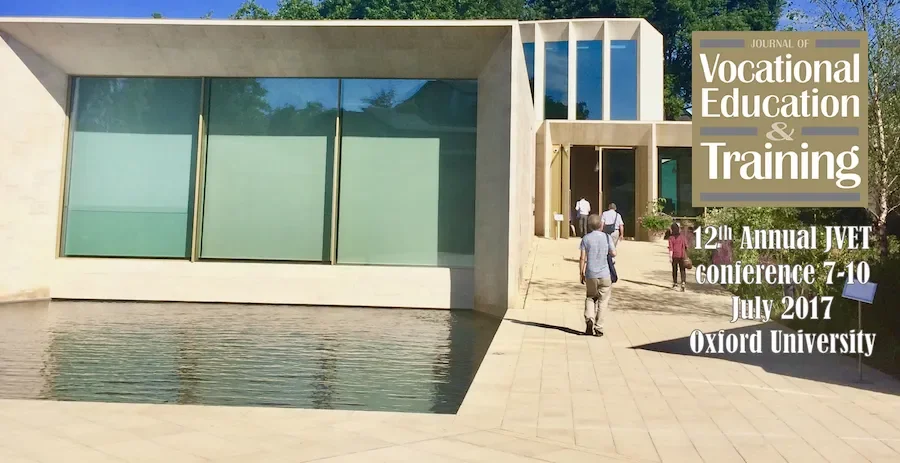

Journal of Vocational Education and Training
Staff from the School of Policy and Practice in DCUs Institute of Education Justin Rami & Jane O’Kelly, alongside Peter Teirnan from the School pf STEM Education, Innovation and Global Studies co-wrote a paper entitled, ‘Squeezing the middle’ - A study of teachers, trainers and staff working in the Further Education & Training sector in Ireland under the backdrop of the Irish financial crisis.
The paper was presented by Justin Rami and looked at the impact of the financial crisis in Ireland on those working within the FE(T) sector in the State. The paper was based upon research conducted as part of the development of a Chapter for a new book, ‘The impact of austerity in Further Education: Cross-cultural perspectives from England and Ireland in International and Comparative Education – Contemporary Issues and debates due to be published by Routledge next month (Aug 17). Part of the research, conducted by FETRC (Further Education & Training Research Centre) highlighted that many practitioners in FET in Ireland believe that they have or had no control or say in how the sector dealt with the whole financial burden placed upon the State in relation to cuts in education. Lillis and Morgan (2012) suggest that, ‘Regardless of economic fortunes, investment in education remains a constant in terms of its perceived value to Ireland and it is seen as critical to the economic recovery of the country. Ireland has one of the highest educational participation rates in the world, is considered to have the ‘most employable’ graduates in Europe and produces more graduates per 1000 inhabitants than any other European country (p.2). Mercille and Murphy (2015) suggest, ‘Ireland has been a poster child for the implementation of fiscal consolidation. Whereas a number of countries initially responded to the 2008–9 financial crisis through Keynesian measures, Ireland immediately started to implement austerity on its own’ (p.4).
The fiscal austerity reforms happened within the context of a €67.5 billion International Monetary Fund (EU-IMF) bailout, which conditionality required ‘structural reforms’, in particular, within the public sector and education. From late 2007 Ireland was impacted by one of the most severe economic and social shrinkages in the international and European financial crisis. There were austerity Budgets implemented from 2008 to 2014, along with conditions imposed as part of the international bailout from 2010 to 2013. Most of these included cuts to public spending, social welfare and increasing of taxes (some of these in the form of stealth taxes), predominantly on middle and low income households, of over €30 billion (ibid). The School of Policy & Practice hosts the Institute of Educations’ Further Education & Training Research Centre (FETRC). FETRC's Mission is to engage with research at all levels to help influence the overall strategic direction of the further education and training sector in Ireland and ensure that policy and practice is driven by evidence based research. The paper highlighted to views and experiences of teaching and training and management staff working within the Further Education (and Training) sector in Ireland during this period.
